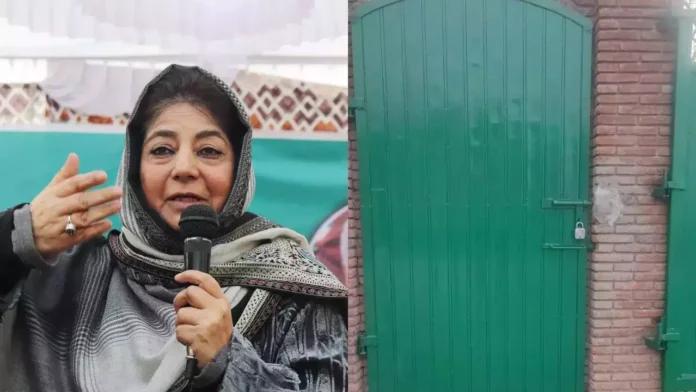Leaders from the People’s Democratic Party (PDP) and National Conference (NC) have claimed to be put under ‘house arrest’ by the police just before the Supreme Court was set to announce its verdict on pleas challenging Article 370. This article delves into the details of the situation and the reactions from the political parties involved.
The PDP, through a tweet, alleged that the police had sealed the doors of PDP chief Mehbooba Mufti’s residence prior to the announcement of the Article 370 verdict. This move, if true, raises questions about the extent to which political leaders are restricted in expressing their views or participating in public discourse during crucial legal proceedings.
Similarly, the NC took to Twitter to express its dismay, stating that Omar Abdullah, the party’s leader, was “locked up inside his house” in the early hours of the morning. The tone of the tweet reflects a sense of indignation, highlighting the perceived infringement on the freedom of political figures in the region.
The timing of these alleged house arrests, just before a significant Supreme Court verdict on Article 370, adds a layer of complexity to the situation. Article 370 granted special autonomy to Jammu and Kashmir, and any legal challenge to its provisions was bound to be a momentous event with far-reaching implications.
More About The Article 370 Verdict Aftermath:
The practice of placing political leaders under house arrest is not uncommon in regions where political tensions run high. However, it often sparks debates about the balance between maintaining law and order and ensuring the democratic right of leaders to express their opinions.
Critics argue that such measures can stifle dissent and limit the democratic process, preventing leaders from actively participating in crucial discussions that shape the destiny of their regions. On the other hand, authorities often justify these actions as necessary steps to maintain public order and prevent potential unrest.
The events leading up to the Article 370 verdict, marked by the alleged house arrest of prominent political figures, raise important questions about the state of political freedoms and democracy in the region. As the legal proceedings unfold, it remains to be seen how these developments will impact the political landscape of Jammu and Kashmir and whether they will influence public opinion on matters of constitutional significance.


